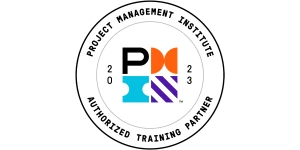Hidden Extras: Sneaky Tricks Providers Pull to Charge you More!
Hidden charges and unexpected losses can be pretty frustrating. Millions pay for services that they either don’t want or weren’t mentioned. Don’t let this happen to you. Stay vigilant, and providers’ sneaky tricks will be plain to see! In this handy guide, we break down the ways in which providers bloat your bill without you realizing. We also offer suggestions for how to recognize and deal with these hidden charges and downsides.
Hidden Costs and Sneaky Tricks
Dubious service providers will occasionally try to make you pay more than you wish. There are lots of ways in which they do this, such as admin and handling fees and additional costs based on the size of your group. In our experience, the only solution is to ask your service provider about all costs as early as possible. Have them put the fees you’re expected to pay in your contract or simply get a quote from them. If you aren’t happy, don’t sign anything. Question any suspicious fees. You shouldn’t have to pay any more than the amount agreed on at the beginning. That’s just bad practice.
Additional extras and blatantly unnecessary fees can upset your budget and make it difficult for you to forecast any return on your investment. And the financial pros of Six Sigma training can be reduced by paying hidden costs. Interrogating your fees will ensure you don’t pay anything you didn’t want or agree to.
Watch Out for Service Providers’ Sneaky Tricks
There are lots of sneaky tricks providers pull to make more money from you. Remember, you’re just another client to them, and some of their practices can be unscrupulous:
- Free Sample Courses. Nothing is ever really free, and costs have to be covered somehow. Typically, you’ll be expected to move on to the full course after you’ve had a taste, and providers will sometimes charge you regardless.
- Accelerated Learning Programs. Beware of Six Sigma courses advertized as “accelerated learning”-based programs. While the name may sound appealing, it is just another way of advertizing a short course. The worst part is that you’ll often pay the same fees as a full course, meaning you get less for your money. Short courses just don’t afford you enough Six Sigma learning or experience, which is why they should be avoided.
- Special Offers. We all like to save money, and any opportunity to save can seem attractive. Special offers tend to focus on how much you could save, as opposed to how much you’re spending. Discounts and other deals are still seen in a lot of training centers, so be aware, and don’t be taken in.
- Large group training. Most Six Sigma trainees are either individuals or small groups. For larger groups, however, the level of support on offer tends to dip. The course leader is essentially there just to perform for the crowd, rather than educate your staff. The trainers entertain your group, often without imparting any useful knowledge, with the aim of creating a desire to return. This is called dependency, a common marketing strategy for many providers.
At 6Sigma.us we are committed to helping people find solutions! We provide hands-on implementations of Lean and Six Sigma at our locations, at your workplace or online. Visit our schedule of classes and find a solution that meets your needs, or contact us and we will surely help you find the right fit.
SixSigma.us offers both Live Virtual classes as well as Online Self-Paced training. Most option includes access to the same great Master Black Belt instructors that teach our World Class in-person sessions. Sign-up today!
Virtual Classroom Training Programs Self-Paced Online Training Programs






